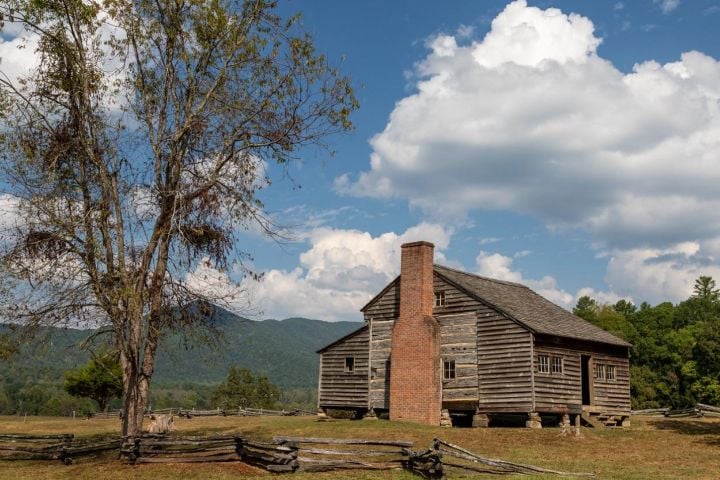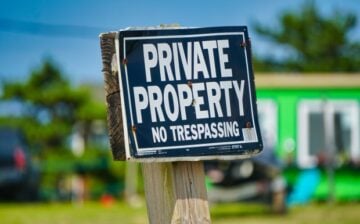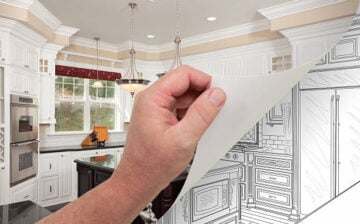Imagine waking up to breathtaking views of lush forests, with the gentle sounds of nature in the background and crisp mountain air filling your lungs. Owning a cabin in the Smoky Mountains can offer you this serene escape from the daily grind, whether for personal relaxation or as a profitable vacation rental. But, buying a cabin involves careful consideration of various factors, from budget to location and amenities. This ultimate guide provides key insights and practical tips to help you find your perfect mountain retreat in the Smokies. Whether you’re eyeing a modest cabin or a luxurious mountaintop lodge, this guide will help you make a well-informed purchase.

1. Determining Your Budget
The first step in purchasing a cabin is determining your budget. Ask yourself: What is the maximum amount you’re willing to invest? Factor in not just the initial cost of the cabin but also ongoing expenses like property taxes, insurance, and maintenance. Aim to have a down payment of at least 20% ready and look into available cabins to gauge the price range. This way, you’ll know if you can afford that rustic retreat or if you’ll need to compromise on size or location.
Recurring expenses like property taxes, insurance, and HOA fees can vary significantly, so it’s essential to research and plan for them to avoid unpleasant surprises. Also, remember that mountain cabins often have specific maintenance needs due to weather conditions. Allocate funds for regular upkeep and consider utilities like water and electricity, which may cost more in remote areas. Thinking ahead about these expenses will help you determine a realistic budget.
2. Exploring the Location: Why Pigeon Forge?
Location is a crucial factor when buying a cabin. The Smoky Mountains offer various picturesque towns, each with its unique appeal, but Pigeon Forge stands out due to its accessibility, attractions, and investment potential. For those looking for cabins for sale in Pigeon Forge under $300 000, there’s a broad selection, ranging from cozy two-bedroom hideaways to more spacious three-bedroom cabins with modern amenities.
Proximity to popular attractions like Dollywood and The Island makes Pigeon Forge a favorite among tourists. This means your cabin could generate steady rental income if you choose to rent it out.
3. Evaluating Cabin Size and Layout
Once your budget and preferred location are set, consider the ideal size and layout for your cabin. Will it be a personal retreat for two or a vacation rental that accommodates large families and groups? Smaller cabins with one or two bedrooms are great for couples or small families, while larger cabins with four or more bedrooms appeal to bigger groups.
Think about the layout, too. Open-concept living spaces with large windows can maximize views and create a welcoming atmosphere.
4. Researching Local Regulations and Permits
Before purchasing a cabin in the Smoky Mountains, understand the local regulations and permit requirements. Each county and town has specific rules about vacation rentals, property modifications, and land use.
In Sevier County, where Pigeon Forge and Gatlinburg are located, short-term rental properties require special permits, and owners must comply with zoning ordinances. Some areas have homeowner associations (HOAs) with additional rules about cabin design and upkeep. Ignoring these regulations can lead to fines or legal issues.
Contact local zoning offices or real estate agents to gather accurate information.
5. Inspecting the Cabin: What to Look For
A thorough inspection is crucial when buying a cabin. Mountain environments present unique challenges, so hire a licensed home inspector with experience in the area. They will identify potential issues such as water damage, foundation problems, or pest infestations.
Check the cabin’s structural integrity, including the roof, foundation, and walls. Look for signs of rot, especially in older log cabins. Test the plumbing and electrical systems to ensure they meet safety standards. Additionally, examine the heating and cooling systems. Since temperatures can fluctuate significantly in the Smokies, a well-functioning HVAC system is essential.
Don’t forget about external features like septic tanks, well water systems, and outdoor decks. These require regular maintenance, and repair costs can add up if neglected. Request maintenance records from the seller to better understand the property’s condition and history.
6. Understanding Financing Options
Securing financing for a cabin purchase may differ from a primary residence. Traditional mortgages are available but often require higher down payments. Look into lenders familiar with vacation properties to increase your chances of approval.
A vacation home loan is an option if you plan to use the cabin personally. These loans usually require a 10-20% down payment. On the other hand, investment property loans cater to buyers planning to rent out their cabins. Although interest rates might be higher, rental income can help offset mortgage costs.
Consider a local lender who understands the Smoky Mountain market or explore national banks with vacation home loan products. Before applying, ensure your credit score is in good shape and compare interest rates, terms, and fees to find the best deal.
7. Exploring Insurance and Tax Implications
Mountain cabins face risks like wildfires, storms, and floods, so securing the right insurance is critical. Standard homeowners insurance may not cover all potential hazards, so consider supplemental policies like flood or wildfire insurance. Work with an insurance agent familiar with cabins in the Smokies to ensure comprehensive coverage.
Regarding taxes, property owners in Tennessee benefit from relatively low property taxes. However, income generated from short-term rentals is taxable. Familiarize yourself with federal, state, and local tax obligations, and consider consulting a tax professional for advice.
8. Weighing the Rental Potential
Owning a cabin in the Smoky Mountains can be a lucrative investment if you understand the rental market. Pigeon Forge and Gatlinburg attract millions of visitors yearly, making them hotspots for vacation rentals.
Research comparable cabins to estimate potential rental income. Features like hot tubs, game rooms, and mountain views can increase demand and allow you to charge higher rates. Marketing your cabin through popular vacation rental platforms like Airbnb and VRBO will also broaden its reach.
Managing a rental property requires time and effort, so decide whether to handle bookings and maintenance yourself or hire a property management company. The latter can take a percentage of your rental income but will relieve you of day-to-day responsibilities, allowing you to focus on other aspects of cabin ownership.
9. Closing the Deal: Final Steps
Once you’ve found your dream cabin, it’s time to close the deal. Work with your real estate agent and lender to finalize the mortgage, and have a closing attorney or title company review all documents. Double-check that all permits, inspections, and insurance policies are in place.
During the final walk-through, ensure the cabin remains in the agreed-upon condition and that any negotiated repairs have been completed.
Conclusion
Buying a cabin in the Smoky Mountains is a significant investment that can provide years of enjoyment and steady income if approached carefully. Determining your budget, exploring the location, and understanding the nuances of cabin ownership are critical steps to ensuring a successful purchase. Whether you’re considering cabins for sale in Pigeon Forge under $300,000 or envisioning a luxury mountaintop lodge, working with knowledgeable professionals and doing your research will help you find the perfect property.
We hope you found this blog post on Buying a Cabin in the Smoky Mountains: Key Considerations, useful. Be sure to check out our post on Real Estate Advisory Services to Upgrade Investment Strategy for more great tips!
Have Experience in the Moving Industry? Want an Additional Income Stream? Work With All Around Moving!
You can make extra money by adding a new revenue stream. Every step of the journey, we’ll be there for you. Partner with us and we’ll help you profit. Click here to learn more.





